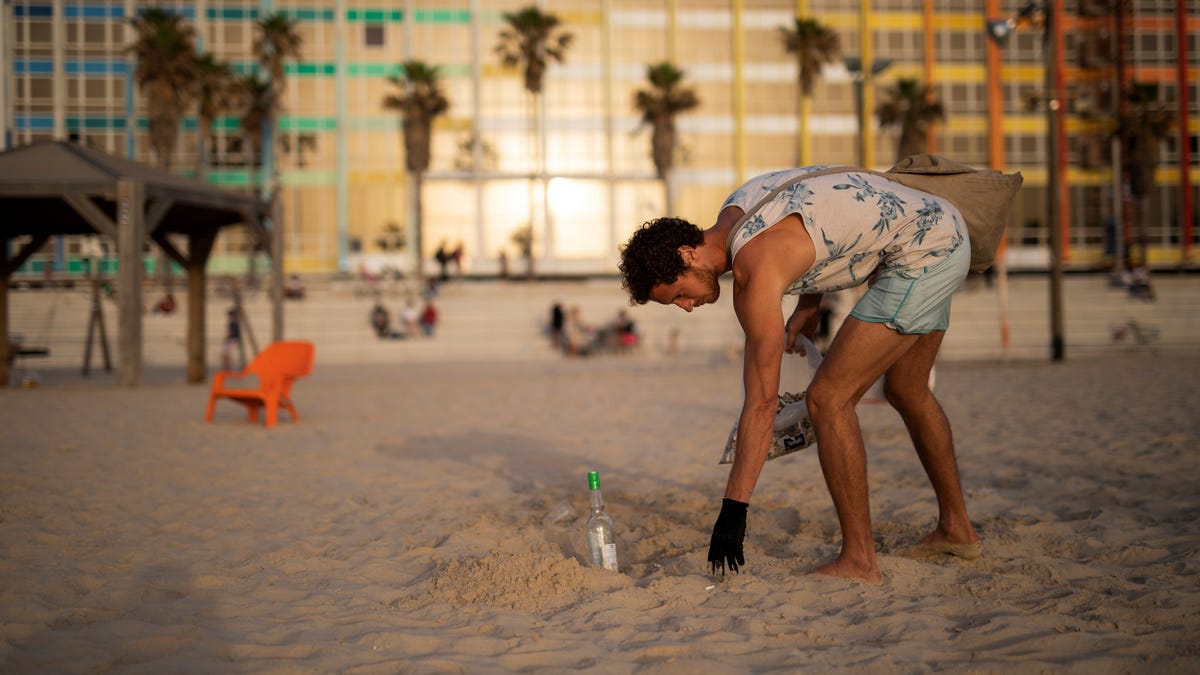
You might not know that cigarette filters are made of plastic. The small, spongy end pieces look a bit like cotton wool, and indeed, some have been made using cotton. But now they’re almost exclusively made of cellulose acetate, a type of plastic. And they’re everywhere.
In his new book Wasteland: The Secret World of Waste and the Urgent Search for a Cleaner Future, Oliver Franklin-Wallis notes that 480 billion plastic bottles are sold worldwide every year, a number that, laid end-to-end, would circle the globe more than 24 times. That’s a vast number, but, he adds, “It’s not even the most numerous. That dubious honour goes to the four trillion plastic cigarette filters flicked to the ground and stamped out annually.”
Advertisement
As Franklin-Wallis told Quartz, a fairly large proportion of plastic bottles are recycled, at least in the global North, though their material degrades, so it usually can’t be made into new bottles again. But cigarette filters aren’t recycled. And very often, they don’t even make it into the trash: People drop them straight on the ground. “It’s the last remaining acceptable form of littering,” Tom Novotny, an epidemiologist at San Diego State University who has studied the environmental impact of cigarettes, told National Geographic.
One reason for this might be the mistaken belief that cigarette butts are biodegradable. In a 2022 study of some 7,500 college-age adults in the US, around a third thought the filters were biodegradable, and a further third didn’t know if they were. The study cites two pieces of observational research on smoker behavior in New Zealand that respectively found almost 99% and 76% of subjects threw their cigarette butts on the ground.
Advertisement
Advertisement
Cigarette filters and the ocean
The World Health Organization has an even higher number for estimated cigarette butt litter: 4.5 trillion annually. One source for that statistic is beach sweeps, which regularly collect thousands of filters in small stretches of sand. The used ends leach nicotine and heavy metals into the environment, kill marine animals, and damage plant growth.
Advertisement
Are there solutions to the problem? Ideally, people need to change their behavior, treating cigarette butts like other forms of plastic waste by throwing them in appropriate bins—though this still won’t make them biodegrade. Europe and some other places are considering banning cigarette filters in an effort to cut both pollution and smoking rates.
But before anyone switches to vaping as a less-polluting alternative, that industry is also causing problems. National Geographic noted in 2019 that plastic, single-use vapes and their constituent parts were already piling up on beaches. Franklin-Wallis points out that vapes are now finding their way into recycling so often that they’re causing major problems for the waste industry: When the tiny batteries inside them are crushed or heated, they explode, leading to disastrous fires at recycling facilities.
